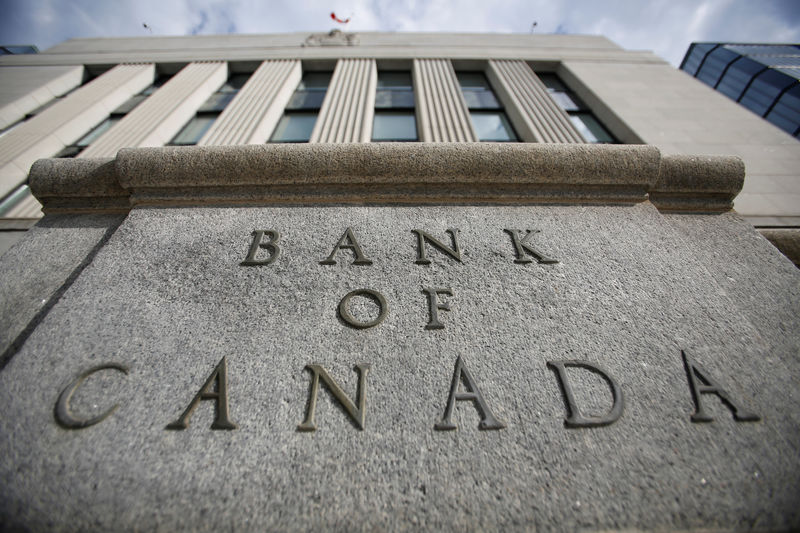By Fergal Smith
TORONTO (Reuters) - The Bank of Canada is likely to keep interest rates steady on Wednesday in its first policy announcement since the federal election, despite signs that investors seeking higher-yielding currencies are shifting more money into Canadian dollars.
Prime Minister Justin Trudeau's Liberal Party won a second term last week, although it lost its majority in the House of Commons. Trudeau has already said his priority would be a tax cut for the middle class.
While increased fiscal spending could boost Canada's economy, a stronger currency could make it harder to raise the share of export-led growth, something that is more sustainable and that Bank of Canada Governor Stephen Poloz has been counting on.
Canada's currency has been the top-performing G10 currency this year, up 4.5% against the greenback, as the Bank of Canada left its benchmark interest rate on hold at 1.75% even as many other central banks such as the U.S. Federal Reserve and the European Central Bank eased.
The Fed is expected on Wednesday to lower the range for its policy rate to below the Bank of Canada's equivalent rate for the first time since December 2016.
"If the Fed cuts while the Bank of Canada holds its fire, you will have Canadian central bankers faced with the fact that the overnight rate north of the border is now the highest in the developed world," said Royce Mendes, senior economist at CIBC Capital Markets.
Canada's central bank will wait until the first quarter of next year before easing, a Reuters poll showed last week.
BULLISH BETS
That could invite "hot-money" investors, who favor currencies with the highest interest rates, to buy Canadian dollars.
"There is definitely an attraction on moving some money into the loonie because it offers a more favorable yield," said Amo Sahota, director at Klarity FX in San Francisco. "The loonie is looking favorable, the market is moving in that direction."
Speculators have raised bullish bets on the loonie to the highest since February 2018, data from the U.S. Commodity Futures Trading Commission showed.
The Canadian dollar hit a three-month high at 1.3050 per U.S. dollar on Monday.
"The bottom line is that the Bank of Canada does not want to cut rates at all," said Christian Lawrence, senior market strategist at Rabobank. "I think we will see the Bank of Canada, and Poloz in particular, just grab onto anything positive and keep running with it."
Stocks on Wall Street climbed to a record high on Monday after U.S. President Donald Trump said he expected to sign a significant part of the trade deal with China ahead of schedule.
Canada is a major exporter of commodities, so its economy could benefit from an improved outlook for global trade.
"What will drive policy in the months to come is developments with regard to trade wars and growth," CIBC's Mendes said.

"For now, both are likely doing just enough to avoid any ease from the central bank that is concerned about stoking household affordability and household debt issues," Mendes added.